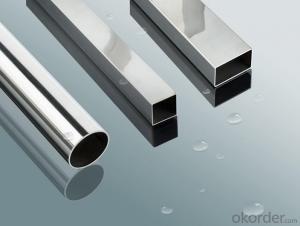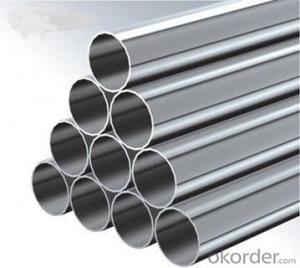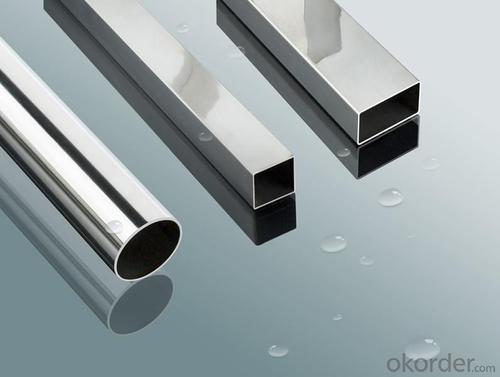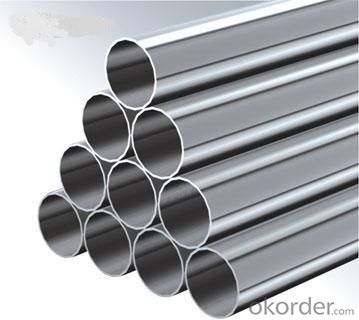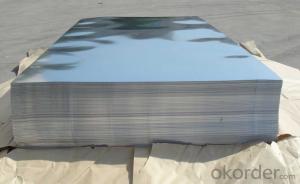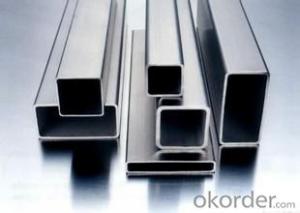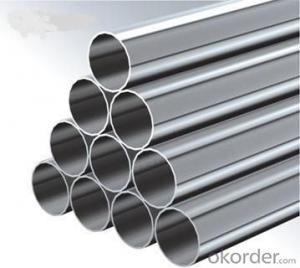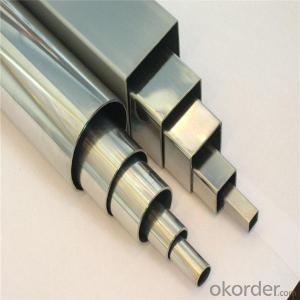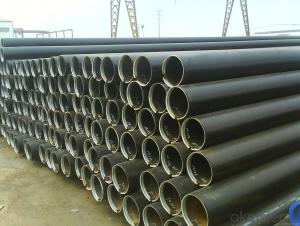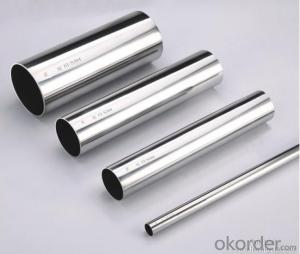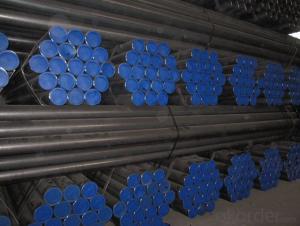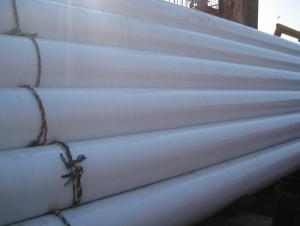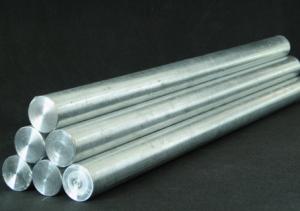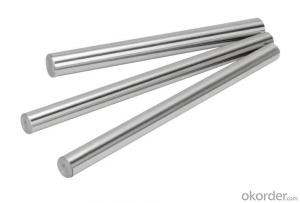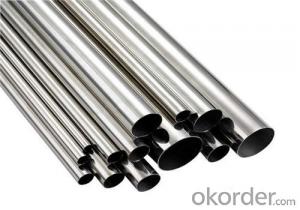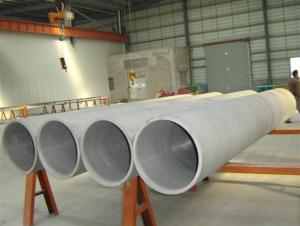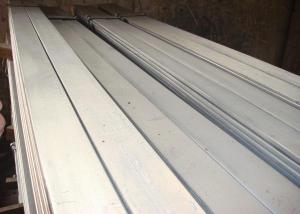Order Small quantity 310s stainless steel pipe
- Loading Port:
- Shanghai
- Payment Terms:
- TT OR LC
- Min Order Qty:
- 5 m.t.
- Supply Capability:
- 4500 m.t./month
OKorder Service Pledge
OKorder Financial Service
You Might Also Like
Specification
Order Small quantity 310s stainless steel pipe
Material | 304:0cr18ni9, 0cr17ni8 201:1cr17mn6ni5n,1cr13mn9ni1n 316:0cr17ni12 or as customer’s request |
Size(round pipe) | 9.5, 12.7, 15.9, 17, 18, 19.1, 20, 21, 22.2, 23, 25.4, 28, 318, 35, 60, 63.5, 73, 76.2, 88.9, 101.6, 114.3, 127, 133, 159, 168, 219 mm or customized |
Size (square pipe) | 10×10,12×12,18×18,23×23,38×38,50×50,70×70,100×100,20×10,23×10,24×12,25×13,36×23, 40×20,50×20,60×15,75×45,80×60,95×45,100×60,150×100 mm or customized |
Size (oval pipe) | 30×15,80×40 mm os customized |
Thickness | 0.24-3 mm |
Length | 6m or according to customer’s request |
Outer diameter | 6.35-219mm |
Tolerance | Outer diameter :±0.2mm |
Thickness :±0.02mm | |
Length :±0.5mm | |
Process method | Code drawn, annealed with nitrogen protection, ultrasonic,automatic shape, polished |
Finishing | A: sanded B: 400#-600# mirror C: hairline brushed D: TIN titanlum E : HL brushed & mirror (two kinds of finishing for one pipe) |
IF YOU HAVE ANY INTEREST,PLEASE CONTACT US! |
stainless steel pipe
Square pipe and rectangle pipe
round pipe
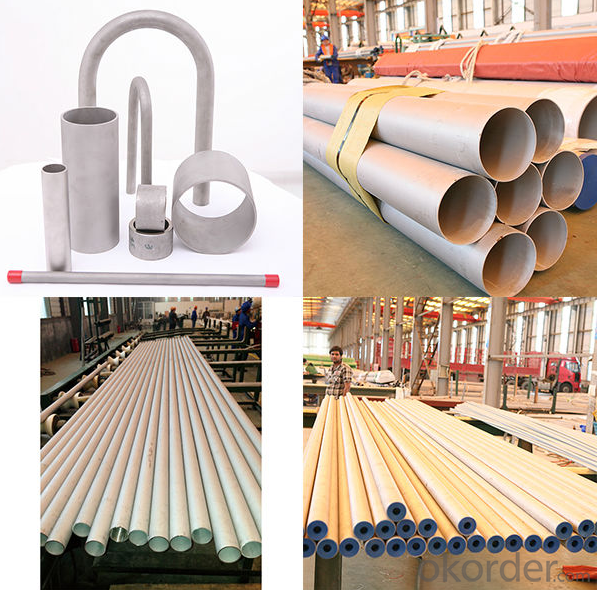
Application of pipes
Production process
Other stainless steel sheet and coils
FAQ
Small quantity, short time delivery
If we have stocks, we can ship from a minimum of 1 kg sample in a few days.
We also manufacture customorder materials in amounts of 300 kg
and up (Some materials are allowed 50 kg) in as few as 3 weeks.
High-precision thickness
We guarantee thickness tolerances that cannot be reproduced by competitors.
Example:
t <0.30mm Tolerance ±1 - 3 μm guaranteed
0.30 mm≤t Tolerance ± 1% guaranteed
Ability to add multiple features
We are capable of adding a variety of features to metallic materials resin coating, plating, bonding different kinds of metal, multigage skiving, etc.
Unique technology and custom-made solutions
We provide customed solutions to your problems with our unique technologies and well versed knowledge of materials acquired through our experience of manufacturing 50,000 items.
Choose the appropriate base metals for your needs.
We carefully balance quality, delivery time and price,procure various base metals from all over the world.
We manufacture appropriate products to your needs.
To control metal structure(chemical formation)
We can manufacture ultrafine metal structures with a grain size of 1 μm. Using finer grain sizes
provides benefits such as hardenability,balancing strength and ductility, and precision press processing.
Lower total
We taking your processing into account,offer you reduce a total cost by using our product.
Global network
Our plant located in Japan, Shanghai and Taiwan,we also support flexibly local
procurement and production transfer.
Why choose us
The reason why you Choose us
ISO System
SGS and BV Audited company .
Industry experience over 20 years.
Management Systems-Internal Software
Finished Product Inventory-More Than 500 Tons.
Raw Material inventory -Over 800 Mertic Tons.
Shipment of goods -More than 30 countries worldwide.
We have the most convenient transport and prompt delivery.
We offer competitive price with best service .
We have high technical production line with top quality products.
We have win high reputation based on best quality products.
- Q: How do you remove scratches from stainless steel pipes?
- To remove scratches from stainless steel pipes, you can try the following methods: 1. Cleaning: Start by cleaning the surface of the pipe with a mild dish soap and warm water. Use a sponge or soft cloth to gently scrub the scratched area and remove any dirt or debris that might be present. 2. Baking soda paste: Make a paste by mixing baking soda with water until it forms a thick consistency. Apply the paste to the scratched area and gently rub it in circular motions using a soft cloth. Rinse off the paste with warm water and dry the surface with a clean towel. 3. Toothpaste: Apply a small amount of non-gel toothpaste to the scratched area. Using a soft cloth or sponge, rub the toothpaste in gentle circular motions. Rinse off the toothpaste with warm water and dry the surface thoroughly. 4. Stainless steel cleaner: Look for a cleaner specifically designed for stainless steel surfaces. Follow the instructions provided on the cleaner's packaging, as different products might have varying application methods. Use a soft cloth or sponge to apply the cleaner and gently rub the scratched area. Rinse off the cleaner with warm water and dry the surface completely. 5. Stainless steel scratch remover kit: If the scratches are deep or extensive, you might want to consider using a stainless steel scratch remover kit. These kits typically include abrasive pads and a polishing compound that can help to buff out scratches. Follow the instructions provided with the kit to achieve the best results. Remember to always test any cleaning or scratch removal method on a small, inconspicuous area of the stainless steel pipe before applying it to the entire surface. Additionally, it's important to avoid using abrasive materials or harsh chemicals that could further damage the stainless steel.
- Q: Can stainless steel pipes be used for sewage applications?
- Indeed, sewage applications can utilize stainless steel pipes. Stainless steel, being an extremely robust and corrosion-resistant material, proves to be an impeccable selection for managing sewage and wastewater. It exhibits resistance against chemicals and other harsh elements frequently encountered in sewage systems, guaranteeing enduring performance and minimal upkeep. Moreover, the smooth interior surfaces of stainless steel pipes diminish the chances of congestion or blockages caused by debris or accumulation. All in all, stainless steel pipes present themselves as a dependable and sanitary choice for sewage applications.
- Q: Can stainless steel pipes be used for chemical pumps?
- Indeed, chemical pumps can utilize stainless steel pipes. Renowned for its corrosion resistance, stainless steel proves to be an appropriate substance for managing diverse chemicals. Its ability to endure the corrosive properties of numerous chemicals safeguards against contamination of the fluids being pumped. Furthermore, stainless steel pipes provide commendable mechanical strength and endurance, rendering them suitable for chemical pumps that necessitate reliability and sustained effectiveness. Nonetheless, it is crucial to take into account the precise demands of the chemicals being pumped and seek guidance from specialists or manufacturers to guarantee the compatibility of the chosen stainless steel with the specific chemicals and operational circumstances.
- Q: How do you calculate the deflection of stainless steel pipes under load?
- To calculate the deflection of stainless steel pipes under load, you can utilize the theory of beam bending. This involves analyzing the pipe as a beam and applying the principles of bending moment and deflection. First, you need to determine the moment of inertia (I) of the stainless steel pipe. This can be done by using the formula specific to the shape of the pipe, such as for a circular pipe: I = π * (D^4 - d^4) / 64, where D is the outer diameter and d is the inner diameter of the pipe. Next, you need to calculate the bending moment (M) acting on the pipe. This is typically obtained from the applied load, which can be in the form of a force, pressure, or weight acting on the pipe. The bending moment can be determined by multiplying the load by the distance between the applied load and the point of interest on the pipe. Once you have the moment of inertia (I) and bending moment (M), you can calculate the maximum deflection (δ) using the formula: δ = (M * L^2) / (E * I), where L is the span length of the pipe and E is the modulus of elasticity for stainless steel. It's important to note that these calculations assume the stainless steel pipe is perfectly elastic and has a homogeneous material composition. Real-world factors like material properties, pipe geometry, and boundary conditions may affect the accuracy of the calculated deflection. Therefore, it is recommended to consult relevant engineering codes, standards, or professional resources to ensure accurate and safe calculations.
- Q: What are the different types of stainless steel pipe elbows?
- Stainless steel pipe elbows come in various types, each designed to meet specific applications and requirements. Here are some commonly used types: 1. The 90-degree elbow is the most popular choice for changing pipe direction by 90 degrees. It is available in different sizes and materials to cater to diverse needs. 2. If a sharper change in direction is required, the 45-degree elbow is used to alter the pipe direction at a smaller angle of 45 degrees. 3. The long radius elbow has a larger radius, ensuring a smoother flow of fluids. It is commonly used in critical applications like the oil and gas industry, where flow rate is crucial. 4. In tight spaces where a sharp change in direction is necessary, the short radius elbow with a smaller radius is often employed. 5. When a pipe size reduction is needed, the reducing elbow is used, resulting in a change in the pipe diameter. This type is commonly found in plumbing systems that require connecting different pipe sizes. 6. Welded elbows are created by welding two separate pipe sections, making them strong and durable. They are suitable for high-pressure applications. 7. Threaded elbows have female threads on both ends, allowing easy connection to other threaded pipes or fittings. They are commonly used in plumbing systems and can be disassembled easily if necessary. 8. Flanged elbows feature flanges on both ends, securely bolted together. They are frequently used in applications requiring frequent disassembly or when a high level of strength is needed. These examples represent just a fraction of the stainless steel pipe elbows available in the market. The choice of elbow depends on specific requirements such as pipe size, fluid flow rate, pressure, and temperature. Selecting the appropriate type of elbow is crucial for ensuring efficient and safe operation of the piping system.
- Q: What is the difference between 316 and 316H stainless steel pipes?
- The main difference between 316 and 316H stainless steel pipes lies in their carbon content. 316 stainless steel pipes have a maximum carbon content of 0.08%, which makes them suitable for applications where corrosion resistance is important, such as in marine environments. They are also known for their excellent welding and forming properties, making them a popular choice in various industries. On the other hand, 316H stainless steel pipes have a higher carbon content, typically around 0.04-0.10%. This increased carbon content provides improved high-temperature strength and creep resistance, making them suitable for applications where the pipes will be subjected to elevated temperatures, such as in high-pressure steam systems or in the petrochemical industry. In summary, while both 316 and 316H stainless steel pipes offer good corrosion resistance and overall performance, the 316H variant is specifically designed to withstand higher temperatures and offer better strength properties.
- Q: How do stainless steel pipes compare to PVC pipes?
- Stainless steel pipes and PVC pipes are utilized extensively in various industries and applications, but they possess distinct dissimilarities that render them suitable for different purposes. A crucial disparity lies in their material composition. Stainless steel pipes are crafted from an amalgamation of iron, chromium, and other elements, affording them exceptional strength and resistance to corrosion. Conversely, PVC pipes are constructed from a synthetic plastic polymer called polyvinyl chloride, which provides good chemical resistance but lacks the strength of stainless steel. Concerning strength and durability, stainless steel pipes hold the advantage. They can endure high pressure and exhibit remarkable heat resistance, rendering them ideal for tasks involving the conveyance of hot liquids or gases. PVC pipes, although less robust, are lightweight and flexible, making them easier to manipulate and install in specific applications. Another vital aspect to consider is cost. PVC pipes generally boast a more affordable price compared to stainless steel pipes, hence their popularity in residential plumbing and low-pressure applications. Stainless steel pipes, due to their higher expense, find more usage in industrial settings where superior strength and resistance to corrosion are imperative. In terms of lifespan, stainless steel pipes enjoy a lengthier expectancy compared to PVC pipes. Stainless steel demonstrates high resistance to corrosion, rust, and other chemical reactions, enabling it to maintain its structural integrity over a longer duration. PVC pipes, while durable, can deteriorate over time due to exposure to UV light, extreme temperatures, and certain chemicals. Concerns surrounding environmental impact have been raised regarding PVC pipes over the years due to the production and disposal processes, which involve the release of toxic chemicals. In contrast, stainless steel pipes are deemed more environmentally friendly as they can be recycled and possess a lengthier lifespan. In conclusion, stainless steel pipes and PVC pipes possess their own unique characteristics and benefits. Stainless steel pipes excel in strength, durability, and resistance to corrosion, making them suitable for high-pressure and high-temperature applications. PVC pipes, in contrast, are lightweight, cost-effective, and easy to install, making them a popular choice for low-pressure applications. Ultimately, the selection between these two materials hinges on the specific requirements and limitations of the project at hand.
- Q: Can stainless steel pipes be bent or shaped easily?
- The flexibility of stainless steel pipes is influenced by several factors, including their thickness, diameter, and grade, which determine how easily they can be bent or shaped. In general, stainless steel pipes possess greater resistance to bending when compared to materials like copper or aluminum. However, by utilizing specialized tools and techniques such as pipe benders or hydraulic presses, it is possible to bend or shape stainless steel pipes according to specific angles or curves. It is worth noting that excessive bending or shaping can potentially weaken or distort the stainless steel pipe, so it is crucial to adhere to proper procedures and guidelines in order to preserve the structural integrity of the pipe.
- Q: Are stainless steel pipes resistant to high temperatures?
- Yes, stainless steel pipes are generally resistant to high temperatures. Stainless steel is specifically designed to withstand high heat and maintain its structural integrity at elevated temperatures. The high chromium content in stainless steel forms a protective oxide layer on the surface, which helps to prevent corrosion and maintain its strength and durability even in extreme temperature conditions. This makes stainless steel pipes suitable for various applications that involve high temperatures such as industrial furnaces, heat exchangers, and exhaust systems. However, it is important to note that the specific resistance to high temperatures may vary depending on the grade and alloy of stainless steel used. Therefore, it is crucial to select the appropriate grade of stainless steel based on the specific temperature requirements of the application.
- Q: Are stainless steel pipes suitable for nuclear power plants?
- Yes, stainless steel pipes are suitable for nuclear power plants. Stainless steel is highly resistant to corrosion and can withstand high temperatures and pressures, making it an ideal material for transporting radioactive fluids in nuclear power plants.
Send your message to us
Order Small quantity 310s stainless steel pipe
- Loading Port:
- Shanghai
- Payment Terms:
- TT OR LC
- Min Order Qty:
- 5 m.t.
- Supply Capability:
- 4500 m.t./month
OKorder Service Pledge
OKorder Financial Service
Similar products
Hot products
Hot Searches
Related keywords
